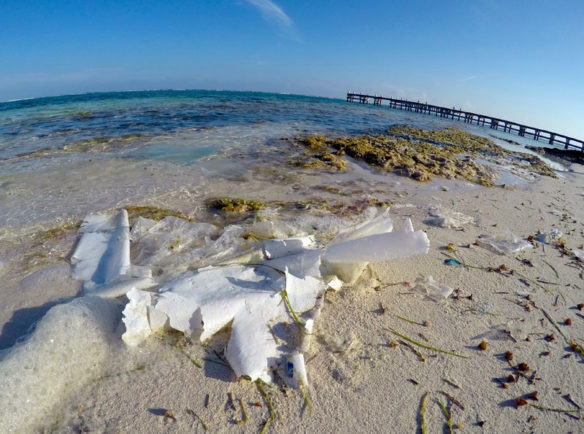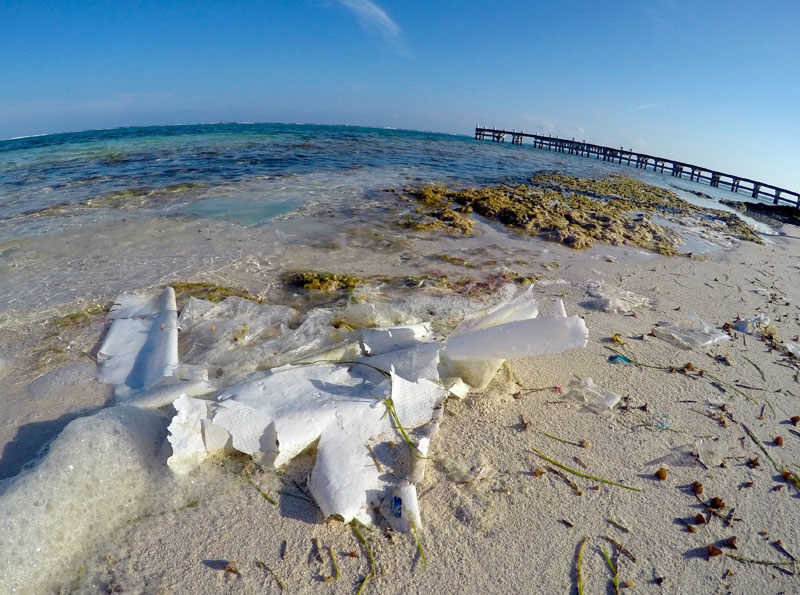
Plastic pollution. Photograph: © SAF — Coastal Care
Excerpts;
More than 11 billion pieces of plastic are lodged within coral reefs in the Asia-Pacific region. According to a new study published in the journal Science, as this plastic gets tangled, it often cuts the coral, increasing the risk of infection and disease outbreaks by as much 89 percent…
Read Full Article; Yale E360 (01-26-2018)
Original Study: “Plastic waste associated with disease on coral reefs,” Science (01-26-2018)
Plastic waste can promote microbial colonization by pathogens implicated in outbreaks of disease in the ocean. We assessed the influence of plastic waste on disease risk in 124,000 reef-building corals from 159 reefs in the Asia-Pacific region. The likelihood of disease increases from 4% to 89% when corals are in contact with plastic…
Taste, not appearance, drives corals to eat plastics; Duke University (10-24-2017)
Great Barrier Reef Corals Eat Plastic; Science Daily (02-27-2015)
Researchers in Australia have found that corals commonly found on the Great Barrier Reef will eat micro-plastic pollution. Microplastics are tiny fragments of plastic in the environment and are a widespread contaminant in marine ecosystems, particularly in inshore coral reefs…
Video captures moment plastic enters food chain, BBC News (03-11-2017)
A scientist has filmed the moment plastic microfibre is ingested by plankton, illustrating how the material is affecting life beneath the waves. The footage shows one way that plastic waste could be entering the marine and global food chain…
Brain damage in fish from plastic nanoparticles in water, Science Daily (09-25-2017)
A new study shows that plastic particles in water may end up inside fish brains. The plastic can cause brain damage, which is the likely cause of behavioral disorders observed in the fish…
More than 8. 3 billion tons of plastics made: Most has now been discarded; Science Daily (07-19-2017)
Humans have created 8.3 billion metric tons of plastics since large-scale production of the synthetic materials began in the early 1950s, and most of it now resides in landfills or the natural environment, according to a study.
Plastic Pollution: When The Mermaids Cry, The Great Plastic Tide, Coastal Care
Washed out on our coasts in obvious and clearly visible form, the plastic pollution spectacle blatantly unveiling on our beaches is only the prelude of the greater story that unfolded further away in the world’s oceans, yet mostly originating from where we stand: the land…









